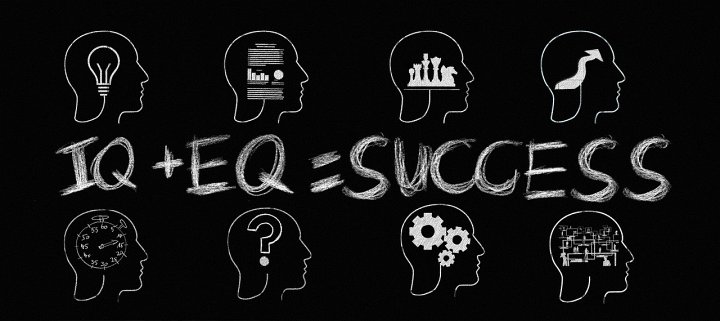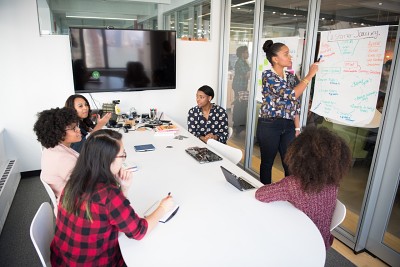How to create meaningful professional relationships?
As social beings, we constantly exchange information, stories, and experiences; some people are more accessible to relate to than others. Generally, the most pronounced characteristics, in this case, are good communication, persuasiveness, influence, and charisma.
Social skills are increasingly fundamental and crucial to becoming successful in personal and professional life. This success comes from the balance and mental, physical, and psychological well-being promoted by true, constructive, aggregating, and lasting relationships.
Scholars of human behavior seek to understand the factors necessary for an individual to develop meaningful relationships. One of the leading names contributing to this sector is the psychologist Daniel Goleman, author of the extraordinary best-seller Emotional Intelligence.
In this work, Goleman masterfully addresses the relational skills of individuals towards themselves and society. Read on to learn more about building meaningful professional interpersonal relationships.
How to create meaningful professional relationships?
To cultivate significant professional relationships, you need to create deeper connections in the workplace; however, it requires a genuine desire to get to know other people and, most importantly, to understand how to add value to their lives.
According to Scott Gerber and Ryan Paugh, authors of Superconnector – Stop Networking, and Start Building Business Relationships That Matter, part of building meaningful relationships is understanding that they require dedication. For this reason, the authors explore the concept of The Art of Selectivity, which consists of the ability to understand the most important connections for personal growth and, thus, define the strategy to maintain them.
The book highlights the great importance of what the authors call “Habitual Generosity .”Act generously and make it a habit because consistency in behavior is critical for others to let themselves be trusted. And trust is the foundation of solid and meaningful relationships.
Social Skills develop a massive role in building meaningful professional relationships. People who practice their soft skills can easily connect with others and form positive relationships.
In the workplace, relationship-building skills are essential for getting along with co-workers, contributing to a team, and building an understanding between you and your peers.
- One of the essential soft skills for building successful working relationships is communication; developing practical communication skills can positively influence how you interact with others.
- Another critical factor in successful business relationships is empathy; when you empathize with colleagues, you show them that you care, understand their feelings and points of view, and respect other people’s ideas and emotions.
- Developing emotional intelligence is another effective way to ensure that you are building positive work relationships. You can do this by practicing empathy, learning to understand the feelings of your teammates, and paying close attention to workplace dynamics.
- Asking for feedback can be highly beneficial to your professional development; communicating your desire to use professional development advice shows that you are motivated to succeed in your work.
- It also shows that you are open to new ideas, learning new skills, or willing to improve. This can positively affect your relationship skills.

7 Tips for Building Meaningful Professional Relationships
1. Allow other people to provide ideas
Consider listening to what other people have to say in your day-to-day work. Ask colleagues for opinions on certain projects, and allow other people’s ideas to enter your everyday life.
This kind of posture can show that you consider the thoughts of others and understand that everyone can contribute in some way. As a result, you value your colleagues and strengthen your relationship.
2. Show yourself as a proactive person
Be proactive with your colleagues. In other words, don’t just wait for them to come to you… But instead, seek to be a proactive person with them.
With different activities in your workplace, you could. For example, you can join a group of colleagues for coffee during lunch or join an informal meeting to provide information to other teammates.
You can improve your relationship-building technique by engaging with your co-workers and contributing to various activities going on in the office.
Show your willingness to help (when possible), come up with ideas and solutions that might be interesting, and start building good professional relationships.
3. Actively listen and encourage empathy
Listen to what people have to say. It is often possible to capture a series of important information, in addition to being through listening that we can better understand the other. Therefore, this understanding helps us to build good professional relationships.
And while listening to your colleague, remember to encourage an empathetic look, offering support when possible and necessary.
4. Participate in the right events
Participate in events that can encourage interpersonal relationships at work. You start to be seen more by other people, and you can get closer to them to build your network.
After all, how would it be feasible to develop good relationships with co-workers and colleagues if you don’t even approach them in different environments? It’s difficult.
5. Develop your communication skills
So it is! Your communication also needs to be well developed. Without it, how can you express your thoughts?
Therefore, developing your oratory and having the ability to think before saying something are crucial steps that must be taken when building good professional relationships.
6. When communicating, don’t forget to be polite and cordial
Although it sounds a little obvious, politeness and friendship are, in fact, essential elements for you to maintain good relationships with other people.
It is worth remembering that there is the chance to live or work alongside people with opinions, values , and experiences that are very different from yours in the professional environment.
Therefore, treating the people around you well ensures that you will respect them and also that you will be respected. In this way, it is possible to ensure a healthy and beneficial relationship. Always leave differences aside and work horizontally, valuing good manners with everyone.
7. Use your emotional intelligence
Learning to deal with your own emotions can be challenging. For this reason, emotional intelligence is essential for you to develop your ability to deal with them healthily and learn to use them to your benefit!
So you will be able to act consciously, reflecting on the ideal attitude to be taken in the present moment and how this action can influence the results you want.
In addition, emotional intelligence allows you to recognize your own emotions and the emotions of those around you. As a result, socializing becomes more pleasurable, and relationship building takes more positively!
Conclusion
When building meaningful professional relationships, patience and respect are needed. Patience in dealing with a gradual situation (since you don’t build a solid relationship overnight) and respect for dealing with different people.
After all, no one is like us. Everyone has their way of seeing the world. Therefore, nothing is fairer than respecting every thought and, with respect and consideration, creating a path that is promising for everyone involved, do you agree?
References and Further Reading
14 Ways To Build More Meaningful Professional Relationships. Forbes.
9 Strategies For Building Better Professional Relationships. Get happy.
11 Critical Interpersonal Business Skills. AcethePresentation.







